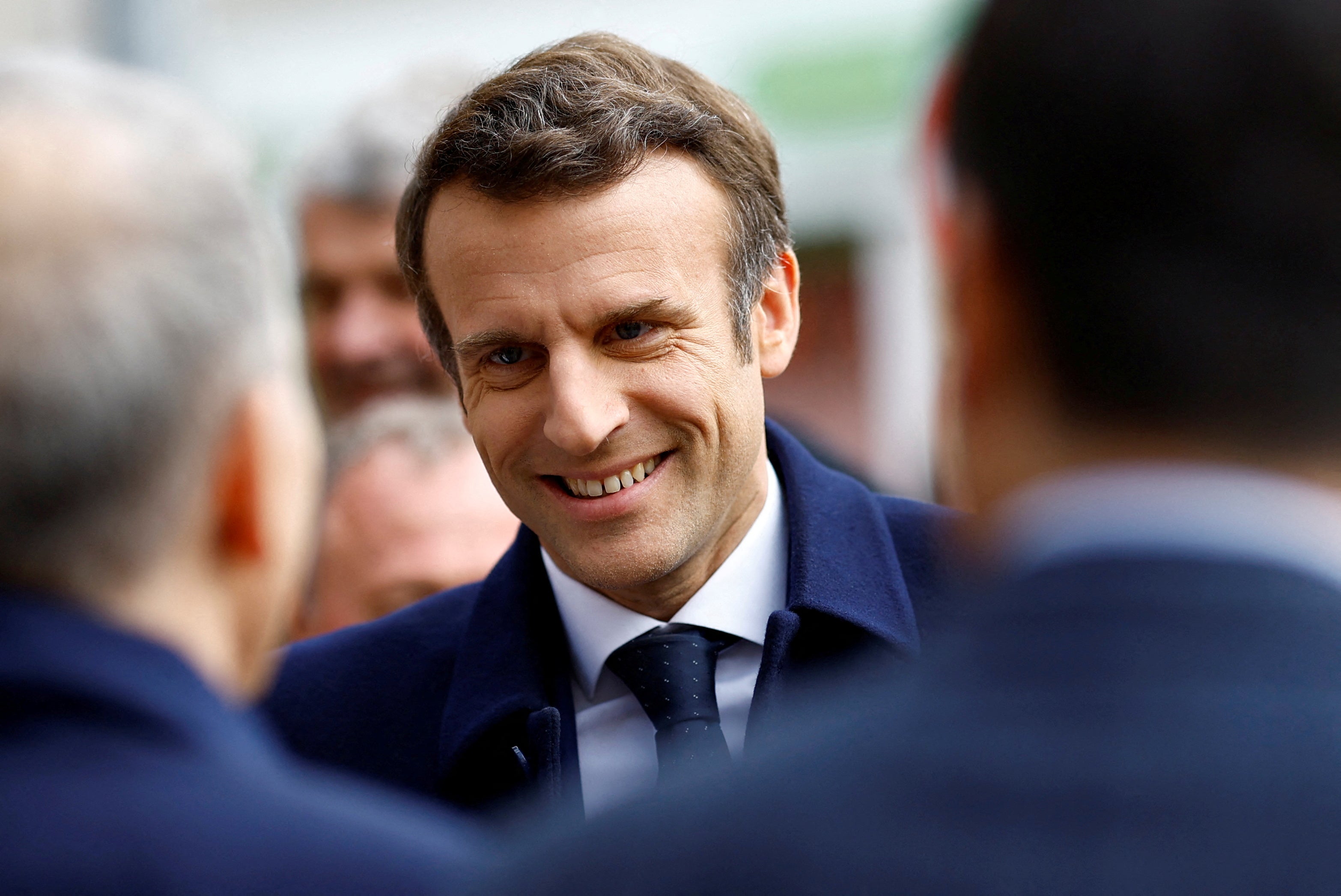The French elections are a test for Emmanuel Macron – and his politics of moderation
Reactivating his centrist base and reconnecting with ‘left behind’ voters will be vital if the success of ‘Macronisme’ is to survive Macron himself, writes Vince Cable


On Sunday, French voters will give their verdict on five years of Emmanuel Macron’s period in office in the first round of the presidential elections. Polling suggests that he is the strong favourite to go into the second round, with a rematch of the 2017 election against Marine Le Pen, and then to win, albeit with a smaller majority.
His biggest problems appear to be political apathy and complacency amongst his centrist supporters, as well as shallow support for his wider party, En Marche.
To those of us of a liberal political persuasion, Macron represents something bigger than success in France’s idiosyncratic politics. He stands for moderate, liberal, outward-looking, European values in a world which has been turned politically on its head by the populism and nationalism of Trump and Brexit and by the emergence of autocratic strongmen in many countries.
The French president has swum successfully against a strong political tide, along with Justin Trudeau, but without the distinct advantage that Canada’s right and left are much less extreme. Other moderates, as in Germany, Italy and Holland, have been sustained by institutionalised consensus building.
Macron embodies and flaunts the traits and values which the new breed of populists loves to hate. He is a fully-fledged member of the cosmopolitan elite, liberal on social issues, “green” and a former Rothschild banker at ease with wealth and power. Many French people, especially on the far right and left, appear to loathe him and what they see as his arrogance and his lack of French-ness. Nonetheless, his constituency of educated, urban, young, middle-class voters appears to be strong and secure enough to re-elect him.
He also has a record of achievement, most notably in the economic sphere. He has largely disproved George W Bush’s celebrated put-down that “there is no word for entrepreneur in French”. Tax and employment law reforms have energised France’s small business and start-up culture, traditionally hamstrung by bureaucracy and an uncooperative labour force. All the indications are that investment and job creation are recovering strongly post-pandemic, compared with both Germany and the UK.
Macron has been trying, with some success, to synthesise the best in Anglo-Saxon capitalism with French “dirigisme” and “planification”. He was my opposite number when I was business secretary, and he was fascinated by the way – pre-Brexit – the coalition government was trying to graft an industrial strategy and selective intervention onto an open, market economy. He was trying to do the same in reverse. He is also copying German apprenticeships as a model for getting unemployed young people into skilled jobs.
His other achievement has been to embed pride in France’s European identity and commitment. “Frexit” has lost its appeal, even on the nationalist fringes. He was able to persuade Chancellor Merkel to go along with a pan-European, post-pandemic recovery programme with common European borrowing. His advocacy of European “strategic autonomy” has been overtaken by the need to form a close alliance with the Biden administration to confront Putin’s Russia, but it remains an important construct for when America First re-emerges.
Macron has also benefited to some degree from his active involvement in trying to head off the war in Ukraine, and then being a leading player in the rapid European response to Russian aggression. Earlier, his decisive and at times draconian approach to the Covid pandemic bore fruit in curbing infections, for which he got some credit.
If Macron has had a big failure, it is his inability to connect with the “left behind” areas of France: the de-industrialised former mining and steel towns, once communist, now National Front, and ageing and declining bits of rural “France profonde” – failing, drab, soulless suburbs. Britain and America have similar problems, but Macron’s inability to connect was illustrated by his disastrous “carbon tax” which alienated millions who did not have access to the public transport and cycle lanes of progressive cities, leading to the “gilet jaunes” revolt.
To keep up to speed with all the latest opinions and comment, sign up to our free weekly Voices Dispatches newsletter by clicking here
The alienation of a substantial part of the electorate may – just – prove his undoing on Sunday if there is large scale tactical voting behind the candidates of the hard right and hard left, squeezing out Macron; or if, in the runoff, left-wing voters cease to regard Macron as “the lesser of two evils” in a contest with Marine Le Pen. She has been made to look less extreme by the emergence of even more polarising candidates like Zemmour, as well as some skilful image polishing.
Neither scenario looks likely, however. Instead, Macron’s problems look like they may emerge further down the road. If he is reelected with only a small majority and there is large scale abstention, his moral and political authority will be seriously diminished. That will undermine his ability to push through controversial proposals to raise the retirement age from 61 to 65 and make reforms to school curricula. In both cases, he faces militant unions and the potential of street violence.
Meanwhile, the president’s continued ability to dominate French politics and to push through reforms depends also on the strength of his party. It has, so far, failed to generate the kind of voter loyalty which attaches to traditional parties of right and left, and there is a risk it will suffer heavy losses in parliamentary elections later this year.
Holding off that tide, reactivating his centrist base and reconnecting with those “left behind” voters will be vital if the success of Macronisme is to survive Macron himself.
Sir Vince Cable’s podcast, ‘Cable Comments with Vince Cable’, is available here






Join our commenting forum
Join thought-provoking conversations, follow other Independent readers and see their replies
0Comments